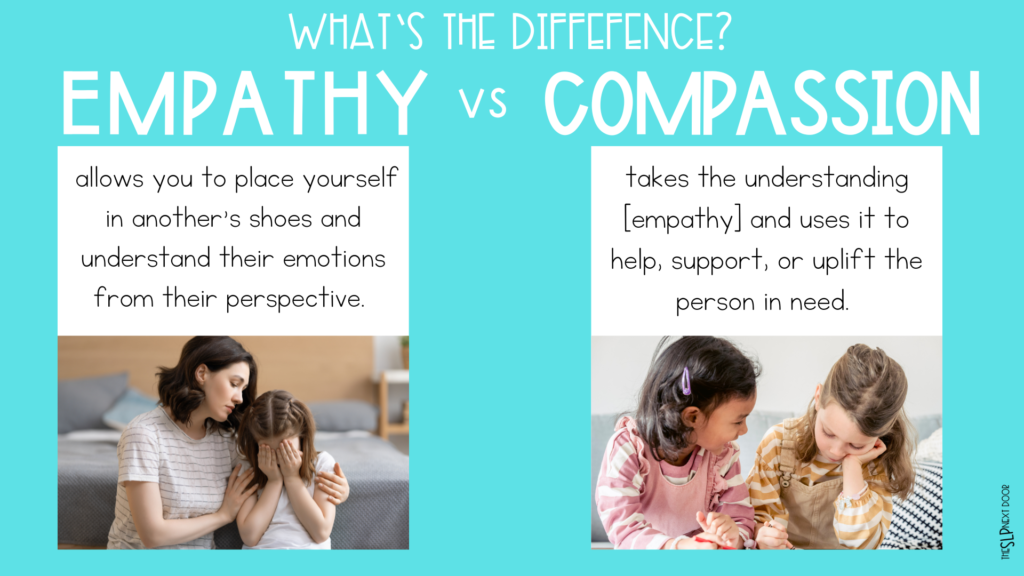In this blog post (and podcast episode), we’re diving into one of the most challenging aspects of our role as SLPs in early intervention and speech therapy—bridging the gap between therapy and home: compassion vs empathy.
Compassion vs Empathy
Let’s discuss the difference between empathy and compassion. These two concepts are related but play distinct roles in early intervention speech and language, especially when it comes to parent involvement.
What is empathy, and why is it important?
Empathy is about feeling what another person is feeling. Empathizing with someone allows you to place yourself in their shoes and understand their emotions from their perspective. For example, you can empathize with other SLPs because you know what working hard for your degree (grad school or SLPA) is like.
Compassion is empathy in action. Compassion takes that understanding and uses it to help, support, or uplift the person in need. For example, if you know a current grad student, you can offer support and different ways you survived those tough and stressful days of your grad program.
In the world of home health speech therapy, we’re often in a unique position to see the struggles parents face. We are in their homes on a weekly basis, after all. Whether it’s fear, frustration, or self-doubt, empathy helps us recognize these emotions in parents, and compassion drives our actions. Empathy and compassion are important. They allow us to provide the support and tools parents need to feel confident and capable.
Parent Involvement
Parents may be hesitant to get involved in speech therapy sessions for many reasons including:
- Fear of Getting in the Way
- Many parents worry they’ll disrupt the therapy process or do something wrong.
- Overwhelm and Uncertainty
- Feeling overwhelmed and uncertain may be present because parents are confused about what’s happening or unsure how to implement their strategies correctly. Parents may also be juggling multiple responsibilities and experiencing other life situations.
- Emotional Challenges
- Parents might be mentally and emotionally checked out [mental health challenges], making it hard for them to engage in their child’s therapy; actually, it might be hard for them to engage in the world in general.

Supporting Parent Involvement
How do we offer the support parents need?
- Open Conversation & Communication:
- Acknowledge their feelings. A simple, “I know this can feel overwhelming,” can go a long way. It lets them know that their emotions are valid and that they’re not alone in feeling this way.
- Empower, Don’t Overwhelm:
- Give them small, manageable tasks to try at home.
- Normalize Asking for Help:
- While you explain and demonstrate the strategy, encourage their feedback and provide opportunities for them to ask questions.
- Use Compassionate Language:
- The words you use and how you use them matter.
- Focus on their strengths and progress rather than any perceived shortcomings.
- Relate as a Communication Expert:
- You are a guide who has the tools to help them support their child’s development.
This is not an overnight change. Learning how to navigate these conversations takes time and trial and error. Some conversations will go well, and others won’t. It might be a little awkward initially, but the more you put it into practice, the easier it gets. You’ll have to try multiple strategies and encourage a parent’s participation multiple times.
You must meet parents where they are and join them in their space. You don’t give up on your toddlers, so don’t give up on their parents, either.


